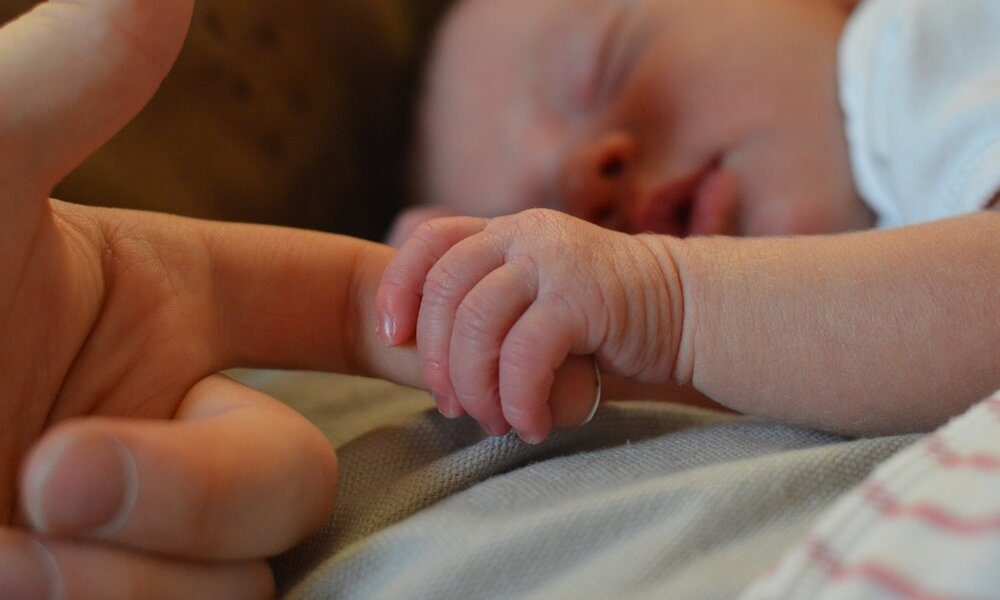
Breastfeeding & Antibiotics: How Well Do They Go Together?

Let’s face it: being a mother is not all roses! In addition to the crazy time management you have to do when juggling your house, work, and your baby, sometimes you have to deal with unpleasant situations, including falling sick.
And when that happens, you might have to take antibiotics to fight back the disease. Agreed, antibiotics aren’t required for all medical conditions, but they’re a must in cases like mastitis, ear or sinus infections, or dental procedures.

Pietro Jeng/Pexels | Antibiotics aren’t required for all medical conditions, but they’re a must in some cases. In the case of a breastfeeding mom, consuming antibiotics might pose a risk to the baby
For a breastfeeding mom, consuming antibiotics might pose a risk to the baby. She might constantly be bothered by questions like, can it pass on to the baby? Will it harm her? Are there any alternatives to the medicine?
If these questions trouble you too, we’ve got expert opinions to clear your doubts.
Are antibiotics safe for lactating mothers?
Generally, antibiotics are considered safe for lactating mothers and their babies. As per the Academy of American Pediatrics (AAP), most mothers are prescribed antibiotics during their pregnancy or post-birth. To some extent, the medicine passes on to the baby while breastfeeding, but it’s not always harmful. Also, if the infant is administered with an antibiotic, it’s safe for the mother to take it while breastfeeding.
But then, does that mean you can consume any antibiotic? Well, the answer is NO!
The Mayo Clinic says first you need to understand how the medicine works while breastfeeding. It explains that normally all drugs enter the bloodstream and are present in the breast milk, but they don’t affect the infant. However, one should consult the pediatrician before taking anything that might be harmful to the little one. Plus, factors like the baby’s age and health, should also be considered before popping pills.
Which antibiotics are safe for infants?
Again, this is something that depends on your baby’s age, health, and weight. It also depends on the recommendation of her pediatrician. According to the Mayo Clinic, lactating women can consume these medicines without worrying about problems in the future:
- Fluconazole (Diflucan) – it’s an antimicrobial used in the case of fungal infections
- Cephalosporins, such as cephalexin (Keflex)
- Penicillin, comprising ampicillin and amoxicillin
If you’re taking any medicine other than the ones mentioned above, you should consult a professional ‘cuz it’s better to be safe than sorry, right?

Polina Tankilevitch/Pexels | Other than a couple of generic medicines, you shouldn’t take any antibiotics without your doctor’s consultation or recommendation
What kind of problems may arise after taking antibiotics?
Antibiotics’ motto is to kill bacteria in the body. They don’t care whether these bacteria are good or bad; they just kill them once and for all. This practice could lead to problems like:
Upset stomach and fuzziness in babies
Often mothers complain that babies have an upset stomach after they’ve consumed antibiotics. This could be due to the basic antibiotic nature of killing all bacteria present in the body (even the good ones). At such a time, you might feel like you should stop breastfeeding, but keep in mind that there’s nothing healthier than mothers’ milk.
Thrush
Killing good bacteria could also lead to the development of thrush in the mother or baby’s body. It could increase Candida albicans (a fungal yeast growth) and could result in diaper rash, indigestion, and white coating on the tongue and mouths of the baby. As for the mother, it could cause nipple pain.

Laura Garcia/Pexels | If a lactating mother is on antibiotics, the medicine can pass on to the baby through her milk, and sometimes cause issues for the child
The bottom line
Though taking antibiotics isn’t loved by all, you have to consume them if the situation requires it. Unless you’re healthy, you won’t be able to take care of your baby, and you might end up infecting her too. So be safe and cautious and do what’s in the best interest of your child.
More in Health & Well-being
-
`
How to Tell if a Bipolar Man Loves You – Key Signs and Indicators
Relationships, especially those involving someone with bipolar disorder, can be challenging but rewarding. The highs and lows characteristic of bipolar...
August 15, 2024 -
`
How to Prepare for All You Can Eat Sushi Buffets – Tips & Tricks
Are you ready to enjoy a sushi buffet and make the most out of your dining experience? If you’re a sushi...
August 9, 2024 -
`
How Does the Brain Play Into Mindset? The Power of the Mindset
How does the brain play into mindset? Within the brain lies the foundation of our mindset, shaping our perceptions and guiding...
August 3, 2024 -
`
How Often Should You Meditate to Achieve Your Goals
How often should you meditate to achieve its benefits? This question is often asked by those looking to incorporate this practice...
July 25, 2024 -
`
How to Be a Better Wife? 10 Essential Tips
Marriage is a beautiful journey, a tapestry woven with moments of joy, tenderness, and perhaps even a few snags along the...
July 19, 2024 -
`
The Best Quotes About Shadow Self You Need to Read
The journey of self-discovery is incomplete without acknowledging the parts of ourselves that lurk in the dark—the shadow self. “Owning Your...
July 12, 2024 -
`
How to Make Your Wife Happy and Strengthen Your Bond
You’ve probably heard the age-old advice, “Happy wife, happy life.” But what does it really mean to make your wife happy?...
July 5, 2024 -
`
Top 6 Best Beaches in Lake Tahoe You Should Not Miss
Lake Tahoe is a gem nestled in the Sierra Nevada mountains, boasting some of the most breathtaking beaches you will ever...
June 28, 2024 -
`
6 Practical Ways of Using Social Media Less & Be More Productive
In today’s digital age, knowing how to spend less time on social media is a game-changer. Social media, though engaging, can...
June 20, 2024















You must be logged in to post a comment Login